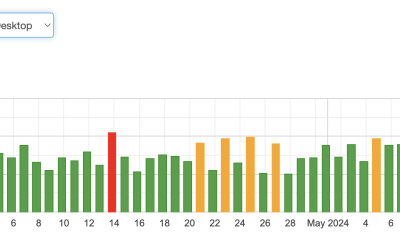AI is revolutionizing the way we gather information, moving us from traditional search boxes to more sophisticated, long-tail searches where the goal is to “find” rather than just “search.” As these AI-driven searches become more prevalent, the battle for dominance in this space will eclipse previous tech wars, such as those over PCs, operating systems, browsers, and smartphones. Key players like OpenAI’s ChatGPT, Google’s Gemini, X’s Grok, and Anthropic’s Claude lead the charge, with Apple and Amazon not far behind. But as exciting as this sounds, AI still faces hurdles in delivering accurate information, empathizing during interactions, and combating biases in training models. The AI that eventually comes out on top will be the one that combines knowledge, empathy, and courage while adhering to principles of fair and open communication. For brands, this new era means evolving traditional SEO and advertising practices, focusing on direct customer engagement to stay relevant in a landscape where AI defines search dynamics.
AI’s Impact on Search: Redefining How We Find Information
Have you ever stopped to wonder how AI is changing the way we search for information? If it seems like finding what you need online has transformed drastically, you’re not alone. The world of search is evolving at lightning speed, and AI is the powerful engine driving this transformation.
AI’s Impact on Search
AI is revolutionizing how searches are conducted. Gone are the days when you typed a few keywords into a search box and hoped for the best. Now, with the integration of advanced AI technologies, searches are becoming more precise and tailored to your specific needs. This shift is moving us from traditional searches to more nuanced and contextual long-tail queries where the goal is to “find” rather than just “search.”
The Evolution from Search to Find
Think about the last time you wanted to know something specific. Maybe instead of typing “best Italian restaurants,” you asked your digital assistant, “Where can I find the best lasagna near me?” This change exemplifies the shift towards more conversational, long-tail searches that AI is making possible. AI’s ability to understand intent and context means you’re getting results that feel more like answers and less like a list of links to sort through.
Historical Context
To fully appreciate the impact AI is having on search, it’s worth taking a look back at previous technology wars. From the competition between personal computers (PCs) in the ’80s to the battle of operating systems (OS) and browsers in the ’90s, and the smartphone wars that defined the past decade, each era saw shifts that fundamentally changed the tech landscape. However, the ongoing AI wars promise to surpass them all in significance and scale.
Tech Wars of the Past
| Era | Key Players | Legacy Impact |
|---|---|---|
| 1980s | IBM vs. Apple (PCs) | Standardized personal computing |
| 1990s | Microsoft vs. Netscape (Browsers) | Browser wars leading to the dominance of the web |
| 2000s | Apple vs. Android (Smartphones) | Revolutionized mobile computing and connectivity |
Just like these past tech battles set the stage for our current digital lives, the AI wars are setting the framework for how we’ll search, learn, and interact with information in the future.
Key Players in the AI Search Revolution
The AI landscape is crowded with influential tech players, each vying to define the future. Among the major contenders are OpenAI’s ChatGPT, Google’s Gemini, X’s Grok, and Anthropic’s Claude. Plus, on the horizon, we have rumored competitors from Apple and Amazon, two giants who’ve been subtly but steadily advancing their AI capabilities.
Major AI Players
OpenAI’s ChatGPT: Known for its conversational abilities and natural language understanding, ChatGPT is making waves in how users engage with AI for detailed and context-rich searches.
Google’s Gemini: Leveraging Google’s vast search and data capabilities, Gemini aims to bring even more refined and contextually-aware search results.
X’s Grok: Aiming to make search smarter and more intuitive, Grok is focused on understanding user intent with greater depth.
Anthropic’s Claude: This emerging player focuses on safe and interpretable AI, prioritizing clarity and accuracy.
The Coming Contenders
Don’t count Apple and Amazon out. Apple is known for its ability to surprise with innovation, and Amazon’s prowess in data and machine learning gives it a solid foundation for AI advancements. The entry of these companies will undoubtedly spice up the competition and push the boundaries of what AI in search can achieve.
AI Challenges
While AI in search has made incredible strides, it’s not without its hurdles. AI systems face significant challenges in maintaining accuracy, demonstrating empathy in interactions, and avoiding biases that stem from their training data.
Accuracy and Reliability
One of the primary concerns with AI-driven search is ensuring the information provided is accurate and reliable. AI models are only as good as the data they’re trained on, and misinformation can creep in, leading to erroneous or misleading search results.
Empathy in Interaction
AI’s ability to mimic human conversation has improved, but genuine empathy remains a challenge. For an AI to truly connect with you, it needs to understand the nuances of human emotion and context, something that’s difficult to achieve with current technology.
Potential Biases
Bias in AI results from the datasets they’re trained on. If the data contains biases, the AI will likely perpetuate them, leading to skewed search results. Addressing these biases is critical to ensure AI provides fair and unbiased information.
Attributes of Winning AI
Given these challenges, what makes for a “winning” AI in the world of search? The AI that comes out on top will need a blend of knowledge, empathy, and courage, and align with classic liberal principles to foster fair and open communication.
Knowledge and Precision
At its core, winning AI must have comprehensive and precise knowledge. It should be able to sift through vast amounts of data and present the most relevant and accurate information based on your specific queries.
Empathy and Understanding
Beyond factual knowledge, a winning AI must exhibit empathy. It needs to understand and adapt to your emotional state and provide responses that are not just accurate but also considerate and supportive.
Courage and Transparency
Transparency is a critical quality for AI. Courage in this context means being upfront about the sources of information, the limitations of its knowledge, and any potential biases. This transparency helps build trust and ensures you feel confident relying on the AI for information.
Alignment with Liberal Principles
Finally, winning AI should promote open communication and the free exchange of ideas. This means respecting privacy, avoiding censorship, and maintaining a balanced perspective to foster a fair and democratic online environment.
The Future of SEO
With AI transforming search, what does the future hold for Search Engine Optimization (SEO)? Traditional SEO methods are undergoing a significant evolution. Brands and businesses must adapt to new strategies and focus on building direct, meaningful relationships with customers to thrive in an AI-dominated, zero-click search world.
From Traditional to AI-Enabled SEO
Traditional SEO relied heavily on keywords, backlinks, and various on-page optimizations to rank higher on search engine results pages (SERPs). However, as AI enhances search capabilities, these tactics alone are no longer sufficient. AI-driven SEO focuses more on understanding user intent, providing high-quality content, and using sophisticated data analytics to stay ahead.
The Rise of Zero-Click Searches
AI’s precision and contextual understanding mean users often get the information they need directly from the search results page, without clicking through to a website. This phenomenon, known as zero-click searches, changes the game for SEO. Brands must ensure that their information is succinctly and accurately presented in the search snippets to capture user attention.
Building Direct Relationships with Customers
In an AI-dominated search landscape, the importance of establishing direct connections with your audience cannot be overstated. Here are a few strategies to consider:
Content Marketing: Craft engaging, informative, and relevant content that resonates with your target audience. This not only helps in AI-driven search rankings but also builds brand loyalty.
Customer Engagement: Utilize social media, newsletters, and personalized email campaigns to maintain a direct line of communication with your customers. AI tools can help analyze engagement patterns and tailor your interactions accordingly.
Brand Trust: Focus on building a trustworthy brand image. Transparent business practices, quality customer service, and consistent value delivery foster trust and encourage repeat interactions.
Strategic Branding
Given the changes AI is bringing to search and SEO, it’s crucial to return to foundational branding strategies. Ensuring that customers choose your brand directly, rather than relying on traditional search engines, will be key to long-term success.
Strengthening Brand Identity
Your brand identity should be clear, compelling, and consistent across all platforms. This helps establish a recognizable presence that customers trust and prefer.
Visual Elements: A strong brand logo, color scheme, and typography can create a lasting impression. Ensure these elements are used consistently across your website, social media, and marketing materials.
Brand Voice: Develop a unique brand voice that reflects your company’s values and resonates with your target audience. Whether it’s casual, professional, or quirky, consistency in tone and messaging is vital.
Customer Experience
Exceptional customer experience can set your brand apart in a competitive marketplace. Focus on providing a seamless and enjoyable journey for your customers from the first interaction to post-purchase support.
Website Usability: Ensure your website is user-friendly, aesthetically pleasing, and optimized for both desktop and mobile devices.
Personalization: Leverage AI tools to provide personalized recommendations, content, and offers based on customer behavior and preferences.
Loyalty Programs
Implement loyalty programs to reward repeat customers and foster long-term relationships. Points systems, exclusive discounts, and early access to new products can incentivize customers to choose your brand over others.
Engaging Storytelling
People love stories. Utilize storytelling to create an emotional connection with your audience. Share your brand’s journey, customer success stories, and behind-the-scenes content to humanize your brand and build deeper relationships.
Conclusion
AI is undoubtedly reshaping the way we search for and find information, moving us beyond traditional methods to a more precise, context-driven approach. As AI continues to evolve, so too must our strategies for SEO, branding, and customer engagement. By understanding and embracing these changes, you can ensure your brand not only survives but thrives in this new era of search.
So, are you ready to adapt to the AI revolution in search? By focusing on creating meaningful, direct relationships with your customers and embracing foundational branding principles, you can stay ahead of the curve and succeed in an AI-dominated world. Your journey to redefining how you find information starts now.











